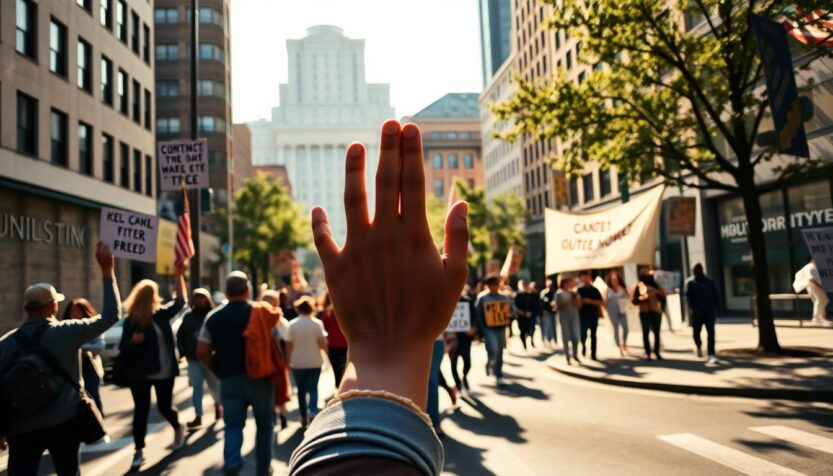In the aftermath of George Floyd’s death in 2020, America experienced a significant awakening regarding systemic racism. This moment sparked a surge of discussions and actions, highlighting the harsh realities faced by many marginalized communities. The recognition of racism was overdue, and the emotional burden it imposed, particularly on Black and brown individuals, was far more profound than many acknowledged.
The collective shock following Floyd’s death served as a stark reminder of the pervasive nature of racism. The Obama era had fostered a false sense of progress, allowing many to overlook deep-rooted issues that continued to fester. Today, the reality of racial injustice remains painfully evident.
The emotional repercussions of ongoing racial tension
Political unrest and a relentless news cycle have contributed to rising anxiety among marginalized individuals. For many in the Black community, the toll of living in a society that devalues their existence is significant. The sense of helplessness and despair can feel overwhelming, particularly amid a persistent barrage of hate speech and derogatory narratives.
Feeling the weight of society’s expectations
The emotional landscape for individuals from marginalized backgrounds often includes fear and uncertainty. Many may appear to thrive professionally, showcasing success, yet beneath the surface lies a heavy heart burdened by their realities. For example, a professional Black woman may seem upbeat during a presentation, but internally she grapples with the constant threats to her dignity and safety.
The notion that progress is linear has been challenged. The aftermath of 2020 initially brought hope for change, but that hope has since been overshadowed by a resurgence of resistance to equality. Many people of color are left wondering if advancements were fleeting rather than part of a sustained movement toward justice.
Understanding the disparities in emotional experiences
The emotional toll experienced by marginalized communities is often dismissed or misunderstood by those outside these experiences. While many express sympathy and outrage at racial injustices, their lived reality shields them from the visceral fear that people of color endure daily. This disparity creates a divide in understanding the urgency of ongoing conversations about race and equality.
The challenge of allyship
Allyship requires active engagement and a commitment to understanding the experiences of those affected by racism. It is essential for individuals in white and cisgender communities to recognize their privilege, which allows them to step back from these conversations—a luxury not afforded to those facing discrimination. The sentiment that society has moved on from discussions about race can be deeply hurtful to those still grappling with systemic injustice.
This moment calls for reflection and action. Allies must check in on friends and colleagues from marginalized backgrounds, providing a safe space for them to share their fears and experiences. Engaging in open dialogues, seeking community connections, and amplifying the voices of those often silenced are critical steps in fostering genuine allyship.
Five important reminders for allies
To navigate this challenging landscape, here are five key reminders for allies to strengthen their commitment to racial justice:
- Acknowledge the fear: Recognize the specific anxieties faced by Black and brown individuals and validate their feelings.
- Check in regularly: Make a conscious effort to reach out to marginalized friends and colleagues, allowing them to share their thoughts.
- Engage with diversity: Continue to seek relationships with individuals from different backgrounds, as the need for dialogue remains urgent.
- Use your voice: Understand your potential impact in advocating against hate speech and supporting diversity initiatives.
- Remember the importance of race: Stay aware of how racial issues affect all aspects of society and commit to fighting for justice.
As we navigate these turbulent waters, it is crucial to remember that hope is not equally distributed among all individuals. The fight for racial justice demands persistent effort and recognition of the emotional toll it exacts on those who often carry the burden alone. Together, we can strive for a more equitable future.






